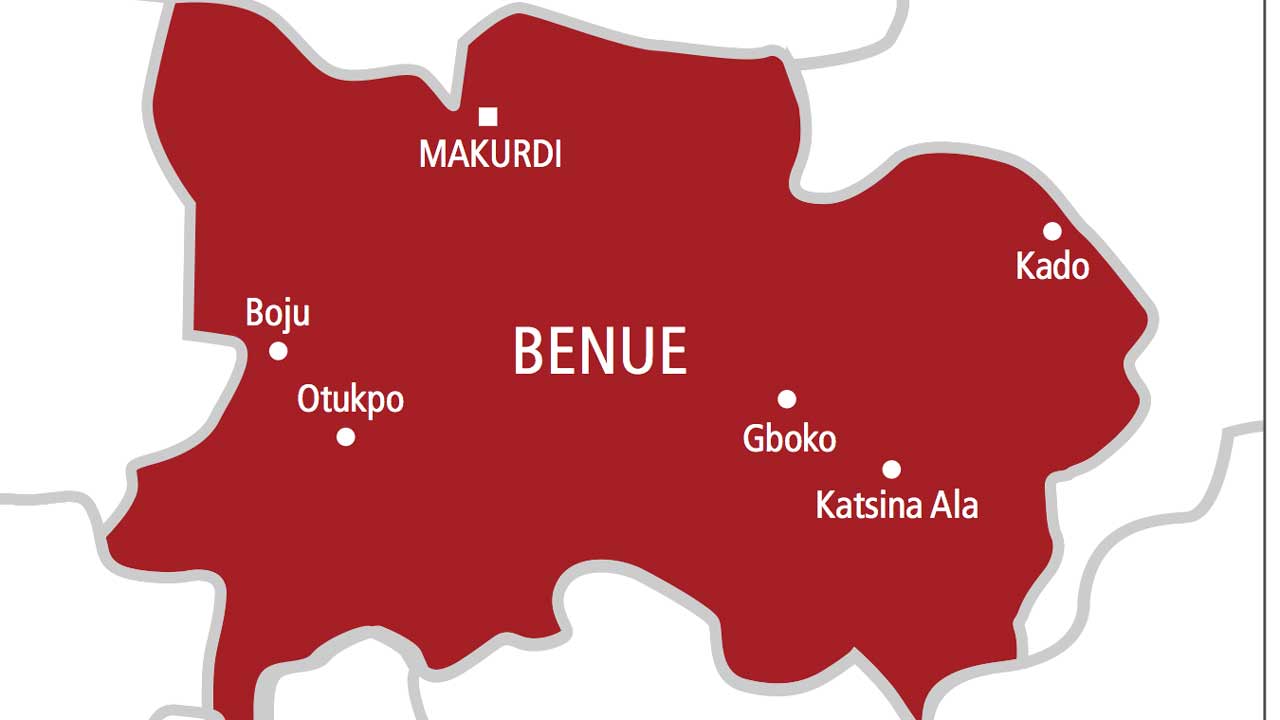Why rising violence in Plateau, Benue must end

By Dooyum Naadzenga
The escalating violence in Plateau and Benue states has spiraled into a catastrophic humanitarian crisis, with armed herdsmen relentlessly targeting communities, leaving destruction and despair in their wake.
Despite numerous promises of intervention from the government, the reality on the ground remains harrowing, threatening lives, livelihoods, and the stability of the nation itself. This crisis demands immediate and decisive action to prevent further destabilization and ensure a future free from fear and insecurity for all Nigerians.
Recent events paint a grim picture. On Christmas Eve 2023, Plateau State experienced a series of coordinated attacks that resulted in the deaths of between 148 and 195 individuals, displacing over 10,000 residents and decimating 25 communities according to reports. Survivors described chaos marked by indiscriminate killings and widespread arson, with homes and churches engulfed in flames. The trauma inflicted upon these communities is profound, as families are torn apart and lives irreparably altered.
As 2025 began, the violence showed no signs of abating. In Benue State, attacks intensified alarmingly. On February 18, 19 people were brutally murdered, and just weeks later, gunmen ambushed a state-owned bus, abducting 13 passengers. Fresh violence erupted again on April 8, 2025, with coordinated assaults in Plateau State claiming more lives and deepening fears among residents.
READ ALSO: U.S Mission in Nigeria lists new requirements for visa application
Governor Caleb Mutfwang of Plateau State has described the ongoing attacks as “genocide,” emphasizing they are not mere farmer-herder conflicts but a deliberate attempt to target and destroy Plateau communities. His call for international attention underscores the severity of the situation and the need for a robust response.
In Benue, Governor Hyacinth Alia has not been prominently featured in media discussions on the rising violence. His recent media chat didn’t speak so much to the issues either.
The transhumance protocol involves the movement of livestock across borders and can exacerbate tensions if not effectively managed. Implementing strict regulations could help reduce conflicts over grazing rights and land use.
The systemic failures of both state and federal governments to respond effectively to these escalating attacks have severely eroded public trust.
Governor Mutfwang assures that his administration will pursue and prosecute those responsible for the violence, emphasizing that the lives lost will not be in vain. This commitment to justice is essential for rebuilding trust and ensuring accountability.
In Benue, the situation is equally dire. Many communities remain displaced, unable to return to their homes or farmlands, deepening food insecurity in a region known as Nigeria’s “Food Basket.” The repercussions of this crisis extend beyond immediate violence; the inability to cultivate crops exacerbates the humanitarian situation. Governor Alia has recently proposed a security summit to curtail the menace..
Pressure is mounting on President Bola Tinubu’s administration to take decisive action in response to this unfolding crisis. The government must prioritize strengthening security by deploying additional forces to affected areas and dismantling known militia camps. The lack of accountability for perpetrators must be addressed; without justice, there can be no peace.
Engaging in dialogue with both herding and farming communities is essential to address the root causes of the violence. Long-standing issues such as land disputes and ethnic tensions must be confronted head-on to foster understanding and cooperation. Initiatives that encourage communication and reconciliation can pave the way for more sustainable solutions to the conflict.
Economic recovery efforts are crucial. The government must provide aid to rebuild communities devastated by violence and restore agricultural activities. Supporting displaced families and providing them with the means to return to their farms will help alleviate food insecurity and contribute to overall stability.
The violence in Plateau and Benue states starkly reminds us of deeper governance failures within Nigeria. It highlights the urgent need for comprehensive strategies that address immediate security concerns and the underlying issues fueling the conflict. The risks of inaction are profound; without swift measures, these regions face further destabilization, with far-reaching consequences for the entire nation.
As Nigeria grapples with these challenges, it is imperative that the Tinubu administration prioritizes peacebuilding efforts. Restoring hope and security for all Nigerians should be at the forefront of government initiatives. The people of Plateau and Benue states deserve a future free from fear, violence, and insecurity.
In recent weeks, fresh attacks have continued to plague both states. In Plateau, gunmen carried out coordinated night assaults on Irigwe communities, killing residents and stoking renewed fears. Similarly, in Benue, attacks have persisted, with incidents like the abduction of passengers from a state-owned bus highlighting the dire situation.
Notable figures have called for urgent attention to these crises. Former Governor of Bayelsa State, Seriake Dickson, emphasized the need for a nationwide ban on open grazing and the implementation of mandatory ranching as a long-term solution to mitigate herder-farmer conflicts.
The humanitarian consequences of the ongoing violence are severe. Thousands remain in Internally Displaced Persons (IDPs) camps, unable to access their communities. The economic impact is substantial, as the destruction of farmlands threatens Nigeria’s food security. The inability to cultivate crops exacerbates food insecurity and contributes to economic instability in the region.
The lack of a robust response from the federal government has led to accusations of selective justice. Stakeholders have noted that while incidents like the Uromi killings in Edo State received widespread attention, the persistent attacks in Benue and Plateau have not garnered similar national outrage. This disparity underscores the need for consistent and equitable action to address all instances of violence across the country.
The crisis in Plateau and Benue states is a complex and multifaceted issue that requires urgent attention. The escalating violence poses a significant threat to the immediate communities affected and the stability of Nigeria as a whole. It is time for the government to take bold action, prioritize dialogue, and commit to rebuilding trust with the affected populations. Only through concerted efforts can Nigeria hope to overcome this crisis and foster a more peaceful and secure future for all its citizens. The imperative for immediate action cannot be overstated; the future of these regions and the nation depends on it.








